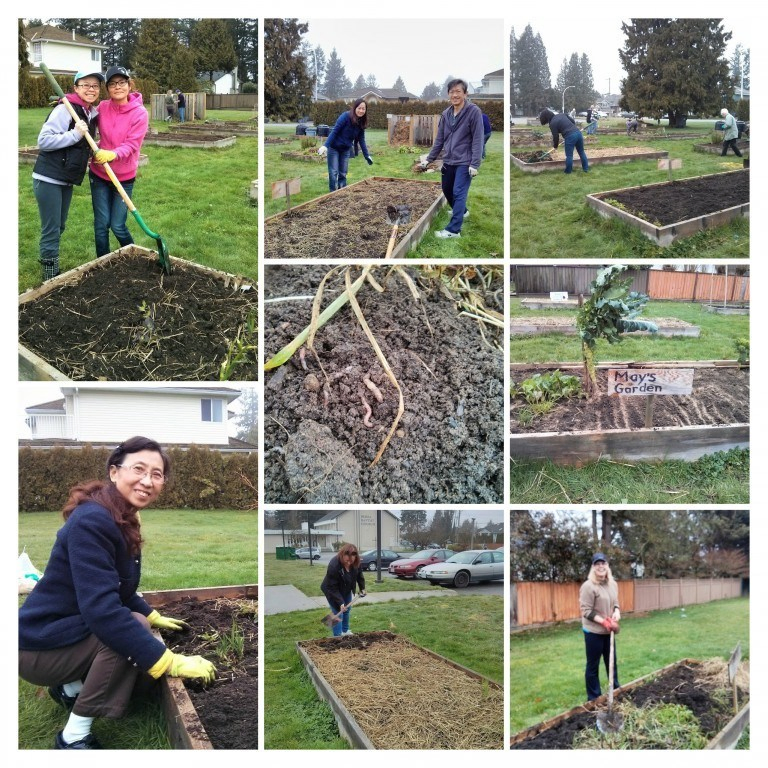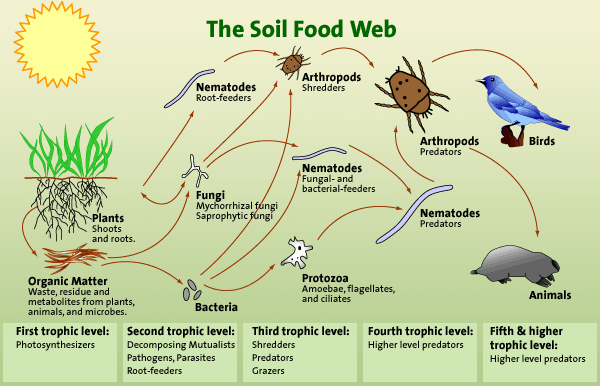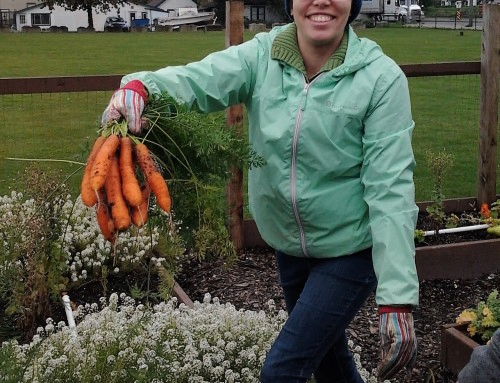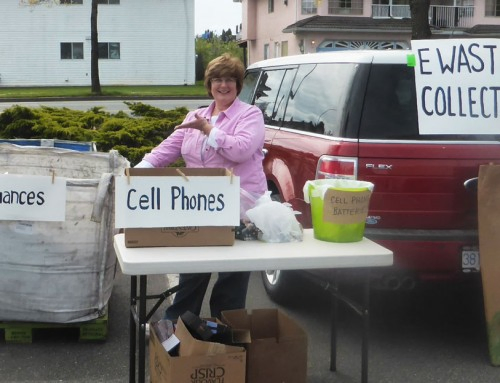Two garden plots are still available for rent at the 29-5 Community Garden hosted by Berea Baptist Church for the 2016 Season. The plots are 4’x8’ located at 132nd Street and 60th Ave in Surrey, BC. Nancy Bailey is the Community Garden Organizer extraordinaire with support from the Administrative Staff in the Church Office, there are 20 plots rented out each year.

I had the privilege of visiting the Community Garden hosted by Berea Baptist Church on the last Saturday in February and met the cheerful gardeners plus a few church members out to help. Nancy planned this winter event to prepare the plots for spring.
Over the fall and winter, organic straw (straw has no grain seeds) was bought and each gardener spread it over any bare soil protecting it from heavy rains (which on average hits the ground at 20km/h!). Removing the straw cover, there were lots of soil-dwelling creatures happy under the straw canopy. This is what we wanted to achieve and a good practice when growing food organically, you need to promote soil microbial life with the help of the soil food web. These creatures in the soil create homes and trails that help improve soil structure. What they excrete is used by smaller organisms that in turn feed plant roots, and then the plants that feed us. This is the way organic food can also contain more nutrients, by harnessing the power of microbial life!

From the Soil Biology Primer of USDA’s Natural Resources Conservation Service website
Once the beds were prepped we mixed in a slow-release organic fertilizer that contains a balanced mixture of macro and micronutrients, from Potassium to minerals like rock phosphate all from organic sources. See what we used here. This would also be a good time to add extra compost to the garden and incorporate it.
Lastly, I shared with the group a mini-lesson in growing in drought conditions that we are planning to expect in July to August on the Westcoast here. The main point I wanted to share was how to water the soil well, from the best time to water and length of time you spend doing it, to assessing how deep the water has penetrated through the soil surface. Combined with other practices such as the addition of compost (also known as organic matter) in your soil, it will be able to retain water longer is the key to successful summer gardening. Often times gardeners don’t live as close to the site than say gardening in your own backyard, so these methods will reduce the number of days one will need to go and water – hopefully from every day to 4x/week. Of course, you can also pair up with another gardener to share the watering duties of your garden plots too!






